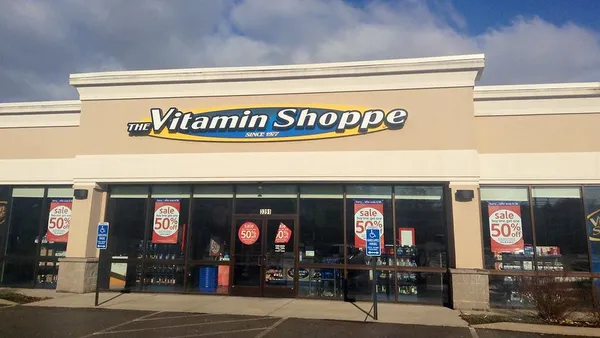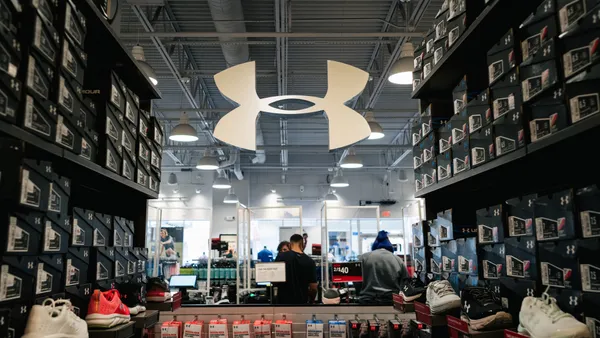Dive Brief:
-
Weeks after credit rating agency Fitch listed Gymboree on its "Bonds of Concern” list of retailers in danger of default, the children’s apparel retailer is preparing a Chapter 11 bankruptcy filing ahead of a scheduled June 1 interest payment, unnamed sources told Bloomberg.
-
Gymboree is controlled by private equity firm Bain Capital, which is mulling transfer of that control to lenders including Searchlight Capital, Brigade Capital Management and Oppenheimer Holding, according to Bloomberg’s report. The retailer didn’t immediately return a request from Retail Dive for comment.
-
Gymboree CEO Mark Breitbard stepped down in January amid reports that a group of its lenders hired financial advisory Rothschild to guide a possible restructuring of some $1 billion in debt. Last month, Gap Inc. re-hired Breitbard to lead its Banana Republic brand.
Dive Insight:
Gymboree is just the latest mall-based retailer to stumble in the face of declining store traffic and a debt burden piled on by its private equity owner: The Limited and Wet Seal in recent weeks have thrown in the towel, closing stores, laying off workers and filing for bankruptcies.
Bain took over Gymboree in 2010 in a $1.8 billion leveraged buyout that gave the apparel retailer little wiggle room as it faced the prospects of wooing back spooked post-Great Recession consumers. Private equity firms have rarely shown the patience it takes for a proper retail turnaround, in part because those firms keep their focus on getting out with decent profits. Case in point: The Limited’s owner, PE firm Sun Capital, told its investors that despite the closures, it nearly doubled its investment.
“Now private equity is there with billions in debt — and goodbye,” Howard Davidowitz, chairman of New York City-based retail consulting and investment banking firm Davidowitz & Associates, told Retail Dive in the wake of Wet Seal's bankruptcy. “The first thing they do is borrow billions, and retailers can’t function that way because the business is too volatile and it’s too unpredictable. These poor apparel chains end up one way or another in the hands of private equity — and in the end, there’s no company, no stores, no employees, and the private equity made money. Congratulations. That’s how it works.”
Gymboree operates about 1,300 stores. The company hasn’t posted an annual profit since 2011, racking up losses in excess of $800 million.














